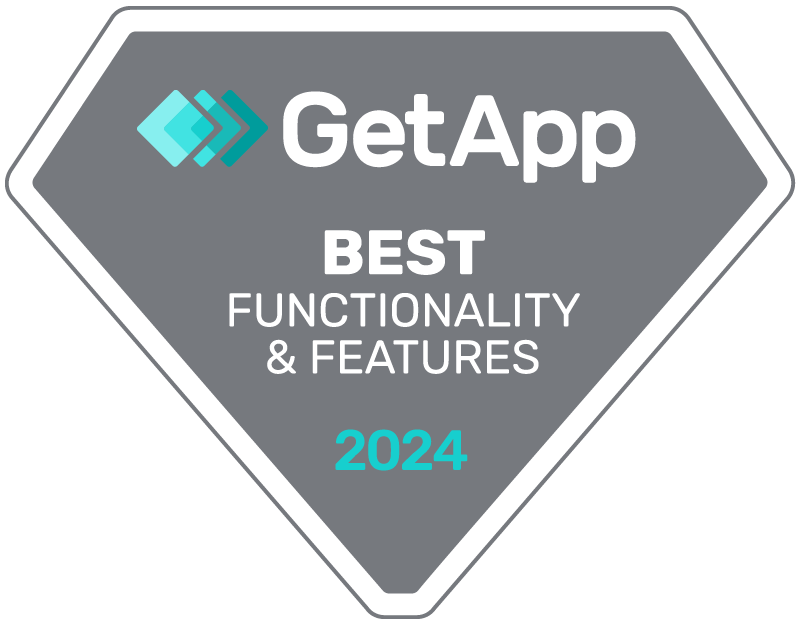Feedback governance protects CEOs

CEOs face personal liability when governance systems fail. Ignorance is no longer a defence. This article explains how proactive feedback governance protects leadership, using examples from Volkswagen, Boeing, and BP. It outlines how professional feedback platforms provide legal and ethical protection in two ways. First, by improving the odds that critical issues will find their way to the appropriate level in the organization. Second, by proving to a future jury that you as a CEO did everything in your power to ensure you were aware.
In an era of transparency, the defence of ignorance for corporate leadership is swiftly becoming obsolete. As scrutiny intensifies, a CEO or founder can no longer credibly claim unawareness of significant internal issues. Such a stance is untenable, legally, and ethically. In response to this, modern corporate governance demands a proactive stance! This means that leaders are responsible not just for what they know, but for cultivating systems that ensure they should know. Consequently, reputation, market value, and personal liberty now hinge on a leader’s capacity to anticipate and address internal failings before they escalate into crises.
Table of Contents
The illusory comfort of the ignorance defence
For decades, the plea of ignorance offered a convenient shield for executives entangled in corporate malfeasance. However, this defence, often citing organizational vastness, has been systematically dismantled by regulatory bodies, courts, and public opinion. Today, leaders are expected to cultivate an organizational culture and implement robust systems providing visibility into potential risks and misconduct. Ultimately, failure to do so is no longer seen merely as an oversight, but rather as a profound dereliction of duty.
Silence or slow escalation led to corporate collapse
The annals of corporate history are rich with cautionary tales where a lack of timely information, deliberate concealment, or sluggish escalation of critical issues led to catastrophic outcomes. These incidents consistently highlight that the existence of a problem is not the real peril. Instead, the downfall of the CEO lies in the organizational blind spots that impede early detection and resolution. As the leadership claims ignorance, the scrutinization that follows frequently expose systemic failures in communication, oversight, and accountability.
Try Questback 14 days for free.
Volkswagen’s “Dieselgate” scandal
The Volkswagen emissions scandal, or “Dieselgate,” is a good example. Here a culture of deception and suppressed information devastated a global enterprise. Volkswagen deliberately installed “defeat devices” in its diesel vehicles to cheat on emissions tests [1]. When exposed in 2015, then-CEO Martin Winterkorn denied early knowledge, citing the specialized nature of “software applications in engine development” [1].
Despite his denials, Winterkorn resigned and faced legal action. Then Volkswagen admitted numerous employees deleted thousands of documents to conceal the cheating [1]. The fallout included monumental fines, such as $22 billion in the U.S., and substantial investor claims [1]. So clearly a CEO’s personal unawareness offers no absolution when systemic failures occur under their leadership.
The Boeing 737 MAX disasters
The tragic crashes of two Boeing 737 MAX aircraft in 2018 and 2019, claiming 346 lives, exposed profound leadership and governance failures. In the aftermath, investigations revealed Boeing’s senior leadership progressively prioritized financial performance over engineering quality and safety [2]. Over time, this cultural shift led to leaders being evaluated on financial metrics rather than deep understanding of aircraft design and safety [2]. The development was particularly noticeable after the McDonnell Douglas acquisition.
In this case, organizational structure was a critical factor. Engineers reported to business unit heads, not directly to the chief project engineer. This fragmented oversight meant the chief engineer and other key individuals claimed unawareness of critical features of the Maneuvering Characteristics Augmentation System (MCAS), which was implicated in both crashes [2]. In addition, Boeing’s board lacked adequate safety oversight, with no standing safety committee or clear internal complaint channels [2]. The devastating outcome included immense human tragedy, a global grounding of the 737 MAX fleet, billions in financial losses, and severe reputational damage. This unequivocally demonstrated the risks of a leadership culture that cultivates blind spots.
BP’s Deepwater Horizon catastrophe
The BP Deepwater Horizon oil spill in 2010 was a monumental environmental catastrophe. It vividly underscored the perils of leadership detachment and profound neglect of safety standards. BP CEO Tony Hayward faced severe criticism for his perceived lack of responsiveness and accountability, with his infamous remarks widely interpreted as attempts to minimize responsibility [3].
Despite Hayward’s earlier public commitment to transforming BP’s safety culture, the disaster tragically exposed a failure to implement effective systemic change [3]. Consequently, this incident served as a stark reminder that companies may outsource operational tasks, but they can never outsource ultimate responsibility for safety and ethical conduct. The dismissive “SODDI defence” (Some Other Dude Did It) was resoundingly rejected. BP’s top leadership was held squarely accountable for the systemic failures that precipitated the catastrophe [3].
Is the lack of a detection system the bigger risk for a CEO?
These historical precedents illuminate a critical insight for today’s CEOs and founders. The paramount risk isn’t merely the existence of problems—ethical lapses, safety hazards, or operational inefficiencies—which are, to some extent, inevitable. The true, insidious danger lies in the absence of a robust, systematic framework designed to detect these issues early, escalate them rapidly, and ensure they are addressed with documented management actions.
In today’s intensely regulated and scrutinized business landscape, the defence of “not knowing” is legally precarious and morally indefensible. Stakeholders expect proactive governance, demanding assurance that leadership has established clear lines of sight into organizational health and is fully equipped to respond effectively to challenges. Lacking such a system, companies operate with perilous blind spots, rendering them acutely vulnerable to catastrophic failures.
Legal protection through structured feedback loops
Most companies have introduced a whistle-blower solution. Here we are talking of a different tool. A feedback platform that supports the decisive shift from reactive crisis management to proactive risk mitigation, embedding a culture of continuous feedback and transparency. This systematic feedback platform transforms anecdotal concerns into actionable intelligence, providing a legally and ethically robust governance framework. Such a platform must be designed to:
- Gather Continuous Feedback: It facilitates ongoing collection of insights from employees, customers, and stakeholders, acting as an early warning system for emerging issues [4].
- Anonymize Sensitive Input: By guaranteeing anonymity, it encourages honest feedback, surfacing critical issues without personal risk to employees [4].
- Escalate Red Flags: The system intelligently identifies and escalates critical issues to appropriate decision-makers, ensuring rapid intervention and preventing minor problems from escalating [4].
- Create an Auditable Trail: Meticulous documentation of feedback, escalations, and management actions generates an auditable trail. This verifiable record demonstrates due diligence and responsible governance, crucial for investigations, legal challenges, and ESG compliance [4].
Implementing such a system transforms potential liabilities into strategic assets. CEOs and founders gain near-real-time visibility into organizational health, foster trust and accountability, and strengthens the defence against claims of neglect or lacking leadership. This proactive approach protects reputation, financial stability, and reduces the risk of leaders being held personally accountable.
Feedback systems a core element of governance compliance
Lessons from Volkswagen, Boeing, and BP clearly show that systemic failures in detecting and addressing internal issues lead to devastating consequences. For CEOs and founders committed to building resilient, ethical, and successful organizations, investing in robust feedback mechanisms is not merely best practice—it is a fundamental requirement for modern corporate governance, risk management, and ESG compliance.
It is well-spent time for any leadership team to explore how a systematic feedback platform can empower you with the insights needed to navigate risks. It can foster accountability, and ensure your organization is always aware, responsive, and responsible. Discover how continuous feedback, anonymized input, semi-automated escalation, and an auditable trail can become an indispensable part of your governance toolkit, safeguarding your company’s future and reputation.
References
[1] Ex-VW CEO denies early knowledge of diesel emissions cheating. (2017, January 19). Reuters. https://www.reuters.com/article/world/uk/ex-vw-ceo-denies-early-knowledge-of-diesel-emissions-cheating-idUSKBN15318V/
[2] Tayan, B., & Larcker, D. F. (2024, June 6). Boeing 737 MAX. Harvard Law School Forum on Corporate Governance. https://corpgov.law.harvard.edu/2024/06/06/boeing-737-max/
[3] Kanter, R. M. (2010, June 7). BP’s Tony Hayward and the Failure of Leadership Accountability. Harvard Business Review. https://hbr.org/2010/06/bps-tony-hayward-and-the-failu
[4] Questback. (2017, November 20). ESG Pulse: The Newest Resource to Protect Your Assets. https://www.questback.com/blog/esg-pulse-the-newest-resource-to-protect-your-assets/

Try Questback
Questback is a leading Customer and Employee Experience solution that makes it easy to collect, analyse and take action on key stakeholder insights.












